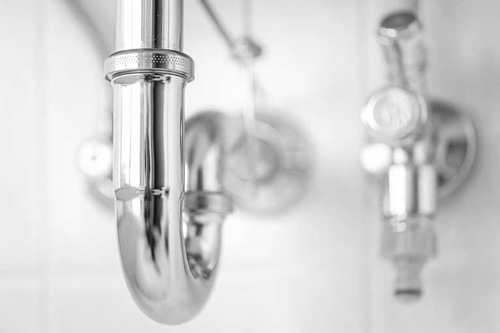Plumbing systems are the unsung heroes of our daily lives, ensuring a steady supply of clean water and the efficient removal of waste. However, over time, these systems can fall victim to a silent and destructive enemy: corrosion. Corrosion in plumbing systems can lead to leaks, reduced water quality, and expensive repairs. Fortunately, one of the most effective ways to combat this issue is through water treatment. In this article, we will delve into the importance of preventing corrosion in plumbing systems and explore how water treatment can be a powerful tool in maintaining the integrity of these crucial systems.
Understanding Corrosion in Plumbing Systems
Corrosion occurs when metal surfaces in plumbing systems react with the water flowing through them. This reaction gradually erodes the metal, leading to leaks, discolored water, and even health concerns due to the release of harmful metals into the water supply. Several factors contribute to the corrosion process, including the pH level of the water, dissolved oxygen content, and the presence of certain ions and minerals.
The Role of Water Treatment
Water treatment involves a series of processes aimed at improving water quality by removing impurities and controlling chemical reactions. When it comes to preventing corrosion in plumbing systems, water treatment plays a crucial role in mitigating the factors that accelerate the corrosion process.
1. pH Adjustment
Maintaining the right pH level is essential to prevent corrosion. Water that is too acidic or too alkaline can accelerate the breakdown of metal pipes and fixtures. Through water treatment, the pH of the water can be adjusted to a neutral range, creating an environment that is less conducive to corrosion.
2. Oxygen Removal
Dissolved oxygen in water is a key contributor to corrosion. Water treatment methods such as deaeration or the addition of chemical scavengers can help remove excess oxygen from the water, reducing the likelihood of corrosion.
3. Corrosion Inhibitors
Water treatment specialists often use corrosion inhibitors, which are chemicals that form a protective layer on metal surfaces. This layer acts as a barrier, preventing direct contact between the metal and the corrosive elements in the water.
4. Water Softening
Hard water, which contains high levels of calcium and magnesium ions, can contribute to scale buildup and corrosion. Water softening, a common water treatment technique, involves removing these minerals to prevent damage to plumbing systems.
5. Filtration
Particulate matter and impurities in water can aggravate corrosion by acting as catalysts or creating abrasive surfaces. Filtration methods remove these particles, ensuring that the water flowing through the plumbing system is as clean as possible.

Benefits of Water Treatment for Corrosion Prevention
- Extended Lifespan: By reducing the corrosion process, water treatment can significantly extend the lifespan of plumbing systems, saving homeowners and businesses from costly repairs and replacements.
- Water Quality: Water treated to prevent corrosion is less likely to contain harmful contaminants, ensuring a safer and healthier water supply.
- Energy Efficiency: Corroded pipes can lead to reduced water pressure and increased energy consumption. Preventing corrosion through water treatment can help maintain the efficiency of the entire plumbing system.
- Environmental Impact: Minimizing the need for repairs and replacements due to corrosion can have a positive impact on the environment by reducing the demand for new materials and the energy required for manufacturing.
Combat Corrosion with Water Treatment Solutions
In the battle against corrosion in plumbing systems, water treatment emerges as a powerful ally. By addressing factors such as pH levels, dissolved oxygen, and the presence of corrosive elements, water treatment methods can effectively prevent the gradual deterioration of plumbing infrastructure. This not only saves money and resources but also ensures a reliable supply of clean, high-quality water for years to come. Investing in water treatment for corrosion prevention is a wise step toward safeguarding both our plumbing systems and the health of those who depend on them. To learn more about how you can safeguard your plumbing and ensure the quality of your water, give Atlantic Blue Water Center a call today at 410-751-9200.
